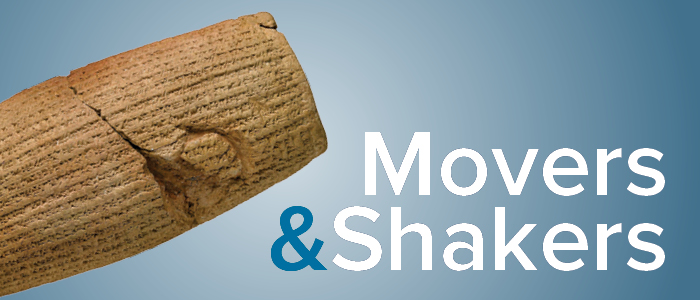“Movers and shakers” exist in every nation in every era. They rise to prominence and wield great influence over people. Cyrus the Great was such a man. As founder and ruler of the vast Persian Empire from 539 B.C. until his death in 530 B.C., Cyrus conquered his world and became one of the most generous rulers in Middle East history. Out of character for ancient monarchs, Cyrus allowed captives within his empire to return to their native homelands.
In the Bible, Ezra 1:1–4 records Cyrus’s decree as follows: “(1) Now in the first year of Cyrus king of Persia, that the word of the LORD by the mouth of Jeremiah might be fulfilled, the LORD stirred up the spirit of Cyrus king of Persia, that he made a proclamation throughout all his kingdom, and put it also in writing, saying, (2) Thus saith Cyrus king of Persia, The LORD God of heaven hath given me all the kingdoms of the earth; and he hath charged me to build him an house at Jerusalem, which is in Judah. (3) Who is there among you of all his people? his God be with him, and let him go up to Jerusalem, which is in Judah, and build the house of the LORD God of Israel, (he is the God,) which is in Jerusalem. (4) And whosoever remaineth in any place where he sojourneth, let the men of his place help him with silver, and with gold, and with goods, and with beasts, beside the freewill offering for the house of God that is in Jerusalem.”
Early scholars assumed that it was unlikely that a king in the ancient world (many of whom were despotic) would make such concessions as recorded in the Bible about Cyrus. But then…
In March 1879, an Assyrian-British archaeologist named Hormuzd Rassam was excavating ancient Babylon’s main temple that was dedicated to the Babylonian god Marduk. During that dig, Rassam discovered a foundation deposit that subsequently became known as the “Cyrus Cylinder.”
An ancient clay artifact, the Cyrus Cylinder includes a declaration in cuneiform script in the name of Persia’s king Cyrus the Great. This artifact is typical of royal inscriptions extolling the virtues, reforms, and military accomplishments of a reigning monarch. The Cyrus Cylinder records how the god of Babylon had chosen Cyrus to improve the lives of the Babylonians. Of interest to a person of biblical faith and all students of the Bible is the Cyrus Cylinder’s recounting of Cyrus’s efforts in repatriating displaced peoples and restoring temples across Mesopotamia. Specifically, Cyrus let conquered people worship the god of their choice rather than the god of their conqueror.
The content of the Cyrus Cylinder corroborates the biblical account of the decree of Cyrus to allow the Jews to return home from Babylonian captivity and rebuild their temple. Although the term “Jew” is not found on the Cyrus Cylinder, the fact that Cyrus repatriated conquered peoples is powerful evidence to the historical accuracy of Scriptures.
In the case of Persia’s king Cyrus and the people of Israel, an entire sequence of events in biblical prophecy played out historically, exactly as revealed by God. The Israelites were warned to amend their ways or face 70 years of captivity in Babylon; the captivity became reality; God promised Israel’s restoration; Cyrus defeated Babylon and allowed the Jews to go home; and the nation of Israel was re-established. From this scenario we are led to draw the following conclusions:
- God keeps His promise to punish those who commit evil deeds.
- God keeps His promise to restore the nation of Israel when the people repent. He promised that a remnant would return to Jerusalem (see Jeremiah 25:12–14; 29:10–14). It was Jeremiah’s prophecy that Daniel read in Babylon that encouraged him to pray for the return of the people to the Promised Land (see Daniel 9:1 and following).
- God’s plan for human history cannot be thwarted.
- Vigilance is critical; how easy it is to allow spiritual fervency to weaken.
- Faith can be passed down from one generation to the next, but it is far from automatic. Each person in each generation must decide for himself/herself whether or not to embrace biblical faith.
- Those who do embrace biblical faith must then decide how fervently they will hold on to their faith. Each Christian’s faith commitment to God fits somewhere on a spectrum from FERVENCY to APATHY (from hot to cold). Where does your faith fit?
Author: Sam Aylestock
Pastor Aylestock is an Associate Pastor at Valley Forge Baptist Temple. He serves as the College and Career Pastor and oversees building/property management.


Recent Comments